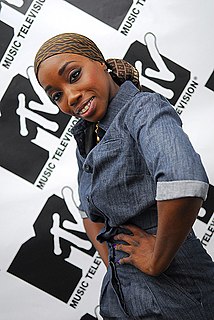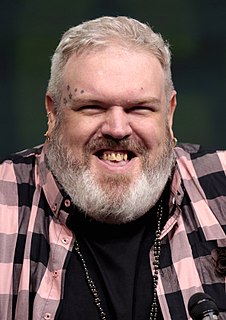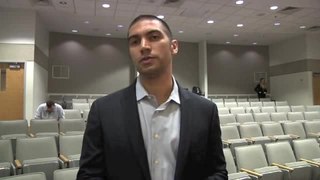A Quote by Buck Brannaman
Horses are very keen on body language, and what I refer to as “presence”, and expression. They know quite a bit about you before you ever get to ‘em. They can read things about you clear across an arena.
Related Quotes
It's really hard to teach me anything. I can't read music. I never learned how to read music. I read books about things and try to learn - I don't like to learn from anybody. Later on I would, once I'd get the hang of things. Like I ride horses, I'm good at that, Western riding. I learned all about it reading and studying. I'm always learning about horses, I like that.
The first time I met Harrison, I think, was at the very first read through of the script. As anyone would be, I was a bit nervous before meeting him. I mean, it's Han Solo, so it was quite crazy. But once you get to know him, he really is such an amazing person. He's such an amazing actor as well. As I said before, his presence really does get the best out of you as an actor.
The best books, they don’t talk about things you never thought about before. They talk about things you’d always thought about, but you didn’t think anyone else had thought about. You read them, and suddenly you’re a little bit less alone in the world. You’re part of this cosmic community of people who’ve thought about this thing, whatever it happens to be.
My work is not so overtly about movement. My horses' gestures are really quite quiet, because real horses move so much better than I could pretend to make things move. For the pieces I make, the gesture is really more within the body, it's like an internalized gesture, which is more about the content, the state of mind or of being at a given instant. And so it's more like a painting...the gesture and the movement is all pretty much contained within the body.
I'm keen to do as little or as much reading and watching as the director may advise, and often off that you kind of stem into other things that you find of influence, perhaps the things that you're watching. It's a good excuse to get to know a new profession, or a new approach, or a new era. It's about authenticity. It's about having the confidence to really feel that you're saturated and know the world you're about to step into and understand the person you're about to be.
I jumped horses over big dangerous fences in competition. And got very, very good at it, at quite a high level. And I realized long since that, yeah, it's the same thing that appeals to me about it. You can't think about anything else, in either case; jumping horses in competition, show jumping, or flying an airplane, for whatever purpose.
I don't particularly care about having [my characters] talk realistically, that doesn't mean very much to me. Actually, a lot of people speak more articulately than some critics think, but before the 20th century it really didn't occur to many writers that their language had to be the language of everyday speech. When Wordsworth first considered that in poetry, it was considered very much of a shocker. And although I'm delighted to have things in ordinary speech, it's not what I'm trying to perform myself at all: I want my characters to get their ideas across, and I want them to be articulate.
I have a degree in cinema studies and the big paper I wrote at the end of that was about Judy Garland and Liza Minnelli. So I thought that I knew quite a bit about Judy Garland, but I read in passing that the Stonewall riots were a reaction to her death and I had never really read enough to know what that meant or how that could be true. I was interested in that I knew so much about Judy Garland, but I really didn't know this story.






































